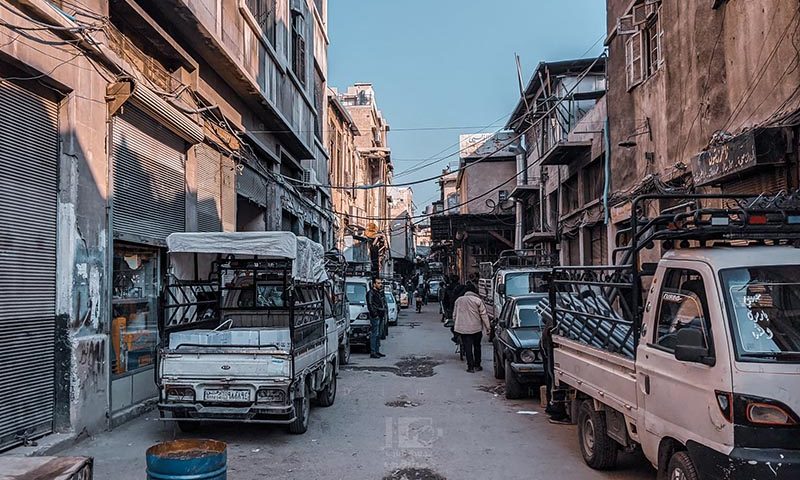



The Director-General of the General Commission for Tax and Fees in the Syrian government, Mundhir Wannous, stated that there would be a new app allowing citizens to access properties’ monetary value in the real estate market.
In a statement to local radio station Melody FM on 10 April, Wannous pointed out that law No.15 regulating real estate sales tax calculations based on estimations of properties’ market value would not affect the real estate selling price agreed upon by a sale contract’s two parties, the seller and the buyer.
On 29 March, the head of the Syrian regime, Bashar al-Assad, promulgated Law No. 15 of 2021, regulating real estate sales tax calculations, the state-run Syrian Arab news agency (SANA) reported.
The law, which will be effective on 3 May 2021, sets property sales tax rates based on the market value per square meter and under monetary value estimation and different criteria and factors for residential, commercial, industrial, agricultural, and tourist properties.
The law mandates the Finance Minister to set up central, main, and sub-committees in the governorates, cities, districts, and service directorates to determine the market value per square meter of a real estate based on price brackets and according to specific criteria, to be uploaded on a Geographic Information System (GIS), specially designed for this purpose.
Economic analyst Khaled Turkawi told Enab Baladi in a previous talk that the new law will prompt committees responsible for properties’ value estimation and assessment to exploit citizens through bribery and extortion.
Enab Baladi contacted Turkawi to ask for his opinion on whether the app will solve the real estate valuation problem. Turkawi pointed out that the software program developed to assess properties’ monetary value would offer approximate estimations. These estimations will be calculated based on the average square meter value for each property at minimum pricing.
The economic analyst noted that there would still be room for manipulating real estate prices despite automation.
Turkawi added that the Syrian government cannot establish a clear-cut and reliable automated system as it lacks adequate infrastructure to support automation options. The government does not have automated cadastral data nor quality Internet service to process these digitized data, if any.
The Director of Syria’s Finance Ministry Media Office, Ali al-Agha, stated to Melody FM that the market value of all properties in Syria will be calculated, estimated, and uploaded on the smart app. He went on to say that once users enter a property registration number, its estimated market value will show up on the app.
Al-Agha added that competent committees would hold periodic meetings to reassess properties’ market value by increasing or decreasing it whenever needed.
Enab Baladi interviewed Syrian lawyer Ahmed Sawan regarding the dangerous aspects of the real estate sales tax law in a previous report. He said that the forming special committees to amend old speculated values of real estate and set new pricing based on the market value per square meter for each property unit in Syria would allow these committees to decide values arbitrarily without any limits or control, which is in the interest of the Syrian Finance Ministry.
According to Sawan, the ministry is only concerned about receiving large tax revenues from individuals, which might result in a price ten times its actual value per square meter.
The law defined taxes imposed on real estate sales at the following rate:
Non-residential properties leased to Syrians and people of other nationalities are subject to a rental income tax at the rate of 10% on the gross rent received annually, provided that the income tax is not less than 6% for every 10,000 Syrian pounds of the leased real estate’s market value.
Residential properties are subject to a rental income tax at the rate of 5% on the gross annual rent, given that it is no less than 3% for every 10,000 Syrian pounds of the leased property’s market value.
The law also sets the rates of real estate sales tax on donated or inherited properties at 15% more than the tax rates on standard property sales.
if you think the article contain wrong information or you have additional details Send Correction